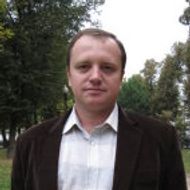В старых версиях браузеров сайт может отображаться некорректно. Для оптимальной работы с сайтом рекомендуем воспользоваться современным браузером.
✖
- A
- A
- A
- АБB
- АБB
- АБB
- А
- А
- А
- А
- А
Обычная версия сайта
Учебные курсы
ФКН
- Национальный исследовательский университет «Высшая школа экономики»
- Факультет права
- Департамент теории права и сравнительного правоведения
- Учебные курсы
- Вне центра: Введение в радикальную политическую мысль 2022 и 2023 учебного года
-
Департамент
- О Департаменте
- Сотрудники
- Научная деятельность
- Образовательная деятельность
-
Всем учащимся и работникам
-
Учебный процесс и наука
-
Социальная сфера
-
-
Преподавателям и исследователям
-
Личные кабинеты работника НИУ ВШЭ
-
Общие вопросы
-
Наука и академическое развитие
-
-
Студентам
-
Общие вопросы
-
Центры и студенческие организации
-
Конкурсы, олимпиады, гранты
-
- Аспирантам
- Дискуссионный клуб «Lex comparativa»
-
Образовательные программы
- Бакалавриат
- Магистратура
- Аспирантская школа по праву
Адрес: г. Москва, Б. Трехсвятительский пер., д. 3, 452
E-mail: theoryoflaw@hse.ru
Тел.: 8 495 772 95 90 доб.22051
Руководство
Руководитель департамента
–
Нагих Сергей Иванович
Заместитель руководителя департамента
–
Шершнева-Цитульская Ирина Александровна
Заместитель руководителя департамента
–
Сафонов Александр Александрович
Мероприятия
Книга
 Публичное право : учебник
Публичное право : учебник
Беньяминова С. А., Виноградов В. А., Вяткин Д. Ф. и др.
М.: Издательство Проспект, 2025.
Статья
Социологическое обозрение. 2025. Т. 24. № 3. С. 309-327.
Глава в книге
В кн.: Рождённые контрреволюцией. Американский консерватизм. СПб.: Владимир Даль, 2025. С. 3-70.
Препринт
Терешин М. В.
Preprints.ru. . НЭИКОН, 2022
Off the Centre: Introduction to the Radical Political Thought
2022/2023
Учебный год
ENG
Обучение ведется на английском языке
3
Кредиты
- О ВЫШКЕ
- Цифры и факты
- Руководство и структура
- Устойчивое развитие в НИУ ВШЭ
- Преподаватели и сотрудники
- Корпуса и общежития
- Закупки
- Обращения граждан в НИУ ВШЭ
- Фонд целевого капитала
- Противодействие коррупции
- Сведения о доходах, расходах, об имуществе и обязательствах имущественного характера
- Сведения об образовательной организации
- Людям с ограниченными возможностями здоровья
- Единая платежная страница
- Работа в Вышке
- ОБРАЗОВАНИЕ
- Лицей
- Довузовская подготовка
- Олимпиады
- Прием в бакалавриат
- Вышка+
- Прием в магистратуру
- Аспирантура
- Дополнительное образование
- Центр развития карьеры
- Бизнес-инкубатор ВШЭ
- Образовательные партнерства
- Обратная связь и взаимодействие с получателями услуг
-
http://www.minobrnauki.gov.ru/
Министерство науки и высшего образования РФ
-
https://edu.gov.ru/
Министерство просвещения РФ
-
http://www.edu.ru
Федеральный портал «Российское образование»
-
https://elearning.hse.ru/mooc
Массовые открытые онлайн-курсы
- © НИУ ВШЭ 1993–2025 Адреса и контакты Условия использования материалов Политика конфиденциальности Карта сайта
- Редактору




Преподаватель
Белькович Родион Юрьевич
Course Syllabus
Abstract